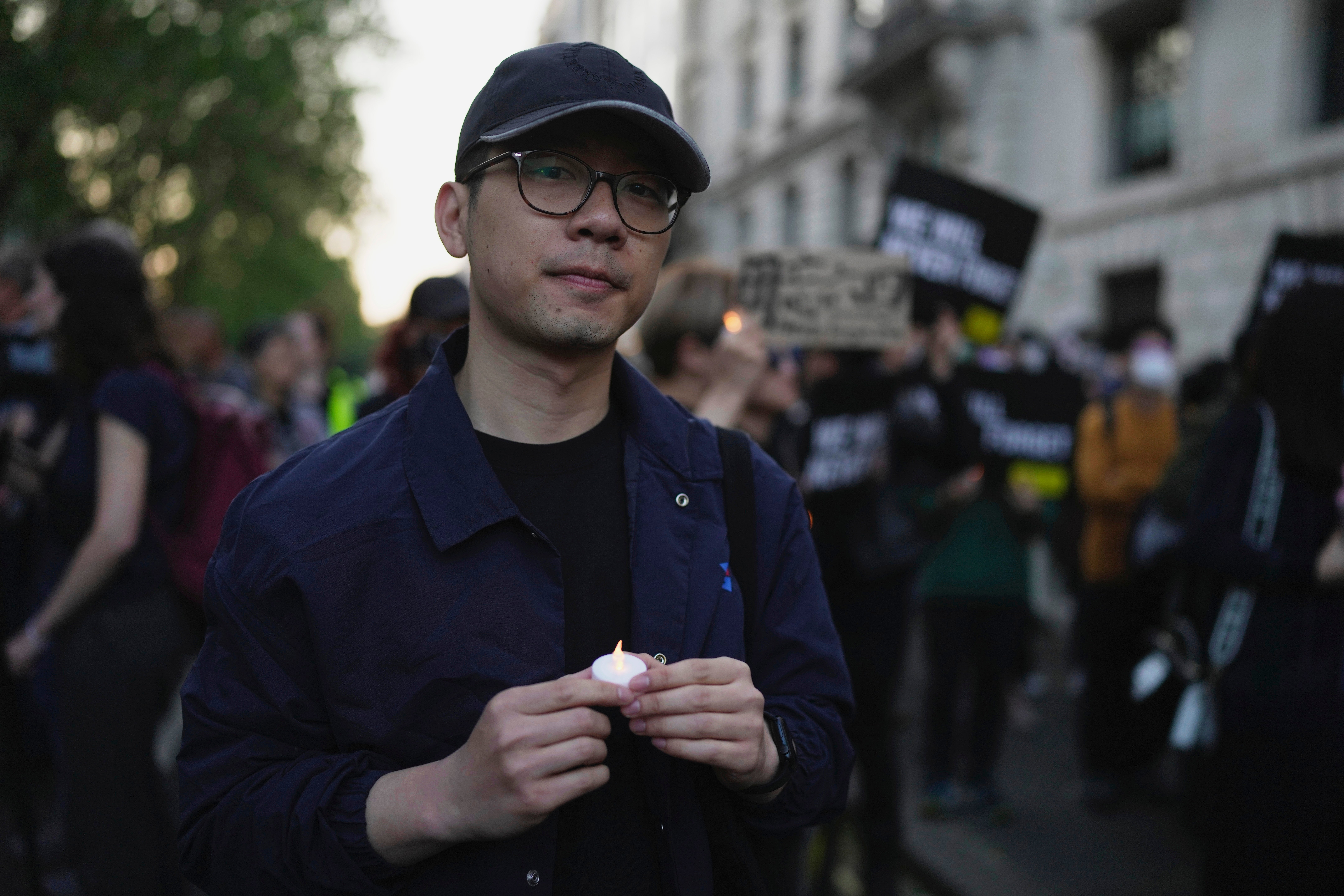Nathan Law: Police raid family home of Hong Kong activist in UK exile
Activist’s family members were taken to police station for questioning

Your support helps us to tell the story
From reproductive rights to climate change to Big Tech, The Independent is on the ground when the story is developing. Whether it's investigating the financials of Elon Musk's pro-Trump PAC or producing our latest documentary, 'The A Word', which shines a light on the American women fighting for reproductive rights, we know how important it is to parse out the facts from the messaging.
At such a critical moment in US history, we need reporters on the ground. Your donation allows us to keep sending journalists to speak to both sides of the story.
The Independent is trusted by Americans across the entire political spectrum. And unlike many other quality news outlets, we choose not to lock Americans out of our reporting and analysis with paywalls. We believe quality journalism should be available to everyone, paid for by those who can afford it.
Your support makes all the difference.Hong Kong’s police took the parents and brother of pro-democracy activist Nathan Law away for questioning after an early morning raid on his family home on Tuesday, days after offering a bounty for his arrest.
The raid by the National Security Department police comes a week after Hong Kong authorities targeted Mr Law along with seven other activists, by placing HK$1m (£99,100) for his arrest or information leading to his arrest.
In an interview with The Independent, Mr Law raised fears over “government stepping up intimidation” and said he will continue to speak up for the freedom of Hong Kong.
Hong Kong’s police have maintained that the eight dissidents – seven men and one woman aged between 26 and 74 – continue to threaten national security and seek to “destroy Hong Kong and intimidate officials” by encouraging international sanctions.
Mr Law, who sought political asylum in the UK after fleeing Hong Kong in 2020 amid a crackdown on activists, has not commented on the development.
The national security police questioned Mr Law’s parents regarding their financial support to the activist in exile and asked if they were his “agent” in Hong Kong, iCable reported.
The family members, who were not formally arrested, were released after questioning.
The raid came as city leader John Jee on Tuesday said that the authorities would “exhaust all methods” to arrest the eight wanted activists, referring to them as “street rats”.
“The eight wanted criminals have committed [offences under the] Hong Kong national security law, endangered national security and been involved in serious crimes… As I have said, everyone should treat them as street rats and avoid [them] at all costs,” Chief Executive Lee said.
Besides Mr Law, the authorities are looking to arrest ex-lawmakers Ted Hui and Dennis Kwok; activists Anna Kwok, Elmer Yuen, Mung Siu-tat and Finn Lau, and solicitor Kevin Yam.
Police have already arrested at least five people who had connections to the activists in Hong Kong since the announcement of the bounty.
The police said they will not “rule out the possibility that more arrests will be made".
The activists have fled Hong Kong in recent years and living in the US, UK and Australia – countries that do not have any extradition treaties with China.
It was the first time the Hong Kong authorities had offered bounties in relation to the city’s sweeping national security law.
Mr Law is one of the most prominent figures in Hong Kong’s pro-democracy movement. He founded the pro-democracy Demosisto Party and ran for the legislative council election in 2016, becoming the youngest lawmaker in Hong Kong’s history.
He was later disqualified by Hong Kong’s high court in July 2017 for having taken the oath of office improperly.
He left Hong Kong in 2020 after Beijing imposed a new national security law on Hong Kong in June, which carries a maximum sentence of life imprisonment for crimes of secession, subversion, terrorism, and collusion with foreign forces. Critics have accused the government of throttling dissent with the help of the law, which makes it easier to arrest and detain protesters.



Join our commenting forum
Join thought-provoking conversations, follow other Independent readers and see their replies
Comments